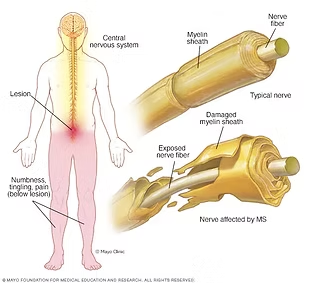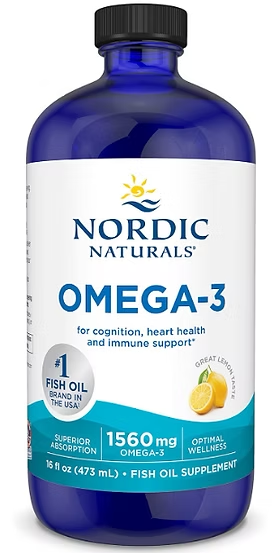Introduction: The Importance of Fish Oil for Nervous System Health
Are you experiencing numbness, tingling, or chronic pain? If so, you’ll definitely want to read this article. We’ll discuss the crucial role fish oil plays in maintaining the health of your nervous system, specifically the myelin sheath. By understanding how fish oil’s essential fatty acids, EPA and DHA, contribute to nervous system health, you can take control of your well-being and alleviate those unpleasant symptoms.
The Myelin Sheath: A Closer Look
Before we dive into the benefits of fish oil, it’s essential to understand the myelin sheath’s role in the nervous system. The myelin sheath is a protective layer that covers nerve fibers, ensuring the efficient transmission of electrical signals throughout the body. A healthy myelin sheath is crucial for proper neurological function.
Healthy Myelin Sheath vs. Damaged Myelin Sheath
The Role of Fish Oil in Myelin Sheath Health
Research has shown that the myelin sheath is primarily composed of lipids, accounting for 70-85% of its structure. Among these lipids are the essential fatty acids – eicosapentaenoic acid (EPA) and docosahexaenoic acid (DHA) – which are commonly found in fish oil. These specific fats are crucial for maintaining the integrity of the myelin sheath and protecting it from damage.
If you’re currently taking fish oil supplements, it’s important to examine the recommended dosage on the bottle. While the suggested serving size might be sufficient for someone without neuropathy, fibromyalgia, or chronic pain syndrome, individuals experiencing these conditions may need to consume a higher dose to compensate for their body’s deficiency.
To achieve optimal nervous system health, you might need to take anywhere from 5 grams to 15 grams of fish oil per day. This “super dose” can help replenish the fatty acids required to maintain a healthy myelin sheath and protect it from further damage.
The Benefits of Fish Oil for Overall Health
In addition to its critical role in supporting the myelin sheath and nervous system health, fish oil offers numerous other health benefits, including:
5. Eye Health:
DHA is a crucial component of the retina, and adequate intake can help prevent age-related macular degeneration and other vision problems.
Studies have shown that EPA and DHA can help reduce inflammation, lower blood pressure, and decrease triglyceride levels, which collectively contribute to improved heart health.
DHA is a major component of the brain’s cell membranes, playing a vital role in cognitive function, memory, and overall brain health.
Research suggests that fish oil may help alleviate symptoms of depression, anxiety, and other mood disorders.
4. Joint Health:
The anti-inflammatory properties of fish oil can help reduce joint pain and stiffness associated with arthritis and other inflammatory conditions.
Conclusion: Take Control of Your Nervous System Health with Fish
Frequently Asked Questions (FAQ)
Fish oil contains essential fatty acids EPA and DHA, which are vital for maintaining the myelin sheath—the protective layer around nerves. A healthy myelin sheath ensures efficient nerve signal transmission and helps prevent numbness, tingling, and chronic pain.
The myelin sheath is a fatty protective coating around nerve fibers. It allows electrical signals to travel quickly and efficiently throughout the nervous system. Damage to the myelin sheath can cause neurological symptoms like pain, weakness, and loss of coordination.
While standard supplement dosages may be adequate for general wellness, individuals with neuropathy, fibromyalgia, or chronic pain may need higher amounts. Research suggests 5 to 15 grams of fish oil per day may help restore myelin sheath integrity and support nervous system health.
Beyond nervous system support, fish oil helps improve heart health, brain function, mental health, eye health, and joint health. Its anti-inflammatory properties also make it beneficial for conditions like arthritis and mood disorders.









